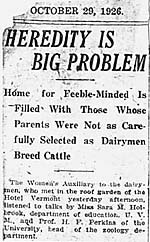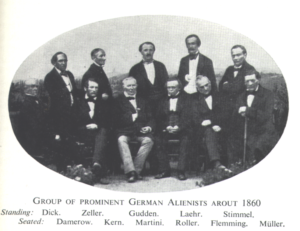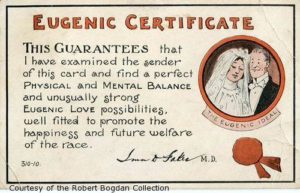
Society Believed in Better Breeding
Even early societies realized that traits could be passed from parents to children. This belief, though based in fact, presented a problem because people did not–or more probably could not–differentiate between conditions that were actually inherited and traits that cropped up in offspring because of upbringing and environment.
Parents who had a genuine mental illness could model behavior that their children picked up and displayed, for example, though the children were not themselves mentally ill. The community, unfortunately, would believe that the mentally ill parent(s) had passed the condition to their offspring–with the children’s behavior as proof. Men and women who saw mental illness in their immediate families were often afraid to marry because they believed their children might inherit insanity–and potential mates were just as often scared off by the prospect. Families of the mentally ill became wary of letting the community know about their loved ones’ condition because all relatives might be stigmatized.

Eugenics Advocacy Poster From the Philadelphia Sesqui-Centennial Exhibition, 1926
As time went on, these ideas were upheld by law. An important immigration law which went into effect in 1882 prohibited entry into the U.S. of any “lunatic, idiot, or any person unable to take care of himself or herself without becoming a public charge.” Not satisfied with preventing undesirable people from entering the country from other lands, the U.S. began to adopt a mindset that felt it acceptable to prevent the reproduction of “undesirables” who were actually citizens. Eugenics* laws made it legal to forcibly sterilize people who were “insane, idiotic, imbecile, feebleminded or epileptic”–all in the public interest.

Immigration Laws Stopped Undesirables From Entering the U.S., courtesy Cold Spring Harbor Laboratory
*Eugenics is the the science of improving a human population by controlled breeding.


